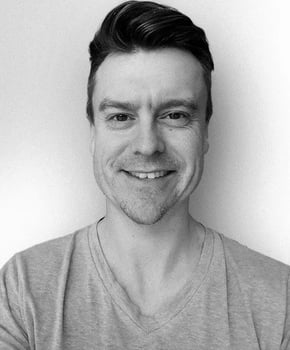Tyler De Block is a Senior Texture Artist currently working at Ubisoft Toronto. Since 2004 he's worked as a 3D Environment Artist, Character Artist or Texture Artist for companies like THQ and Insomniac Games.

We interviewed Tyler so you could get an idea of what it's like working in the game industry. Tyler has traveled back and forth between Canada and the U.S. throughout his career and is offering up the good, the bad and the ugly.
Q: How did you get into the industry?
A: How I got into the industry was probably mostly due to a mix of things. Either being in the right place at the right time, also knowing the right things at the right times, and also knowing the right people which are always going to be beneficial for any job or company you are trying to get into; whether it is being a 3D artist or not.
My story of how I got into this industry started when I when I was going to College for 3D animation. As we were about to finish our program, a few studios were actually getting the invite from the college to interview all the students in my class, Ubisoft being one of them; actually at the time Ubisoft was looking to grow their Montreal studio dramatically which made it a great time to be in the job market.
What happened after Ubisoft came to our school, more than half the people in my class were offered to work for them for some of their entry level 3D modeler and animation positions. I do recall that also one of the key selling points at the time, was the fact that we all knew how to use Unreal, which was being used on one of their current projects at the time. So If I had to look back at it; probably having the opportunity to show my portfolio face to face with someone that worked for Ubisoft, and also knowing unreal was pretty much what got me into the industry.
Assassin's Creed: Unity
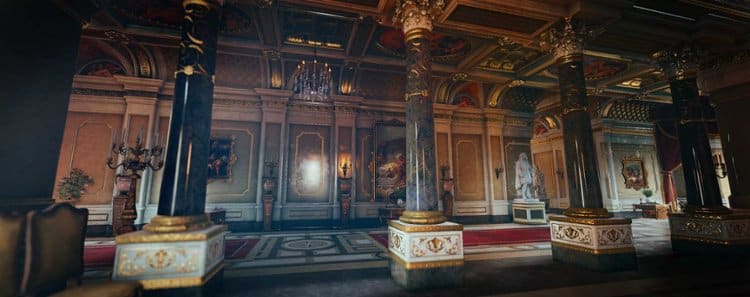
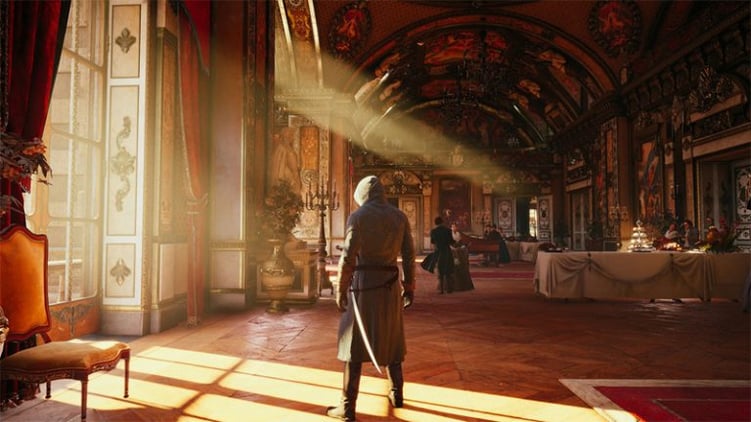
Q: Did you know this was going to be a career at first?
A: I think so, I always heard horror stories in the beginning. I had handfuls of individuals that tried to discourage me from getting into the industry, saying "there's no job security", "everything is contract work", "you barely get paid anything" etc etc, where fortunately I actually didn't get to live those sorts of experiences so much, especially after working 5-6 years into it.
To be fair it's not perfect out there, I have been in cases where I worked for studios doing lots of layoffs, almost monthly. But I would definitely say a lot of the discouraging "bum out" Claims were blown out of proportion by people that had little to no exposure. I also think lots of this doesn't apply for every studio in the industry, it's all depending on where you work, lots of places got their act together, and there are other places that don't compete well in the business. It's no different than any other industry to be fair.
I also think now more than ever I can see how this is feeling like a real industry, where you can develop a real career; especially with lots of growth in indie game/mobile game development. VR development is on the rise, and even 3D printing can open the door to different types of work in the world of 3D graphics. Triple-A game development is requiring more and more people on their staff to produce. Even now I see more opportunity in Freelancing too, so I feel more optimistic about it now more than ever before.
3D Printing of Notorious B.I.G. Tyler has Worked on
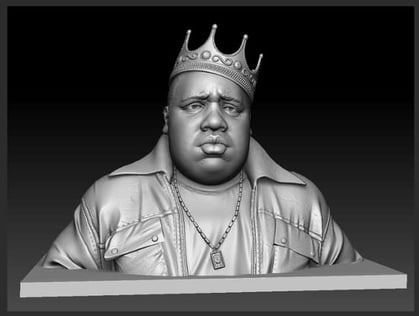
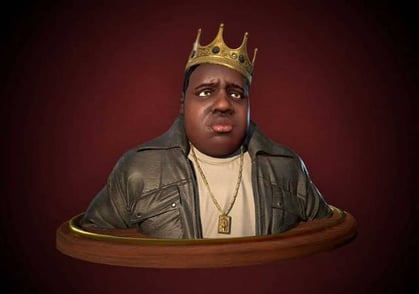
Q: What jobs have you held throughout your career and where has it taken you?
A: I started my career working for Ubisoft Montreal back in 2004-2007, held positions of a character artist and as a level artist. Projects I worked on there were Splinter Cell - Chaos Theory, Prince of Persia - The Two Thrones, Open Season, Rocky Balboa.
Later went to THQ Arizona to work as an Environment Artist on Deadly Creatures and MX vs ATV Reflex.
Afterwards worked in Burbank, California at Insomniac Games. Ended up working on Ratchet and Clank: A Crack in Time for Sony, along with a game for EA called Fuse.
Afterwards went back to THQ, but in Montreal and worked on a project called 1666 which never got released. And for now, I currently work at Ubisoft Toronto as a Senior Texture Artist/Senior Environment Artist where I took part in Splinter Cell Blacklist, FarCry 4 and Assassin's Creed Unity.
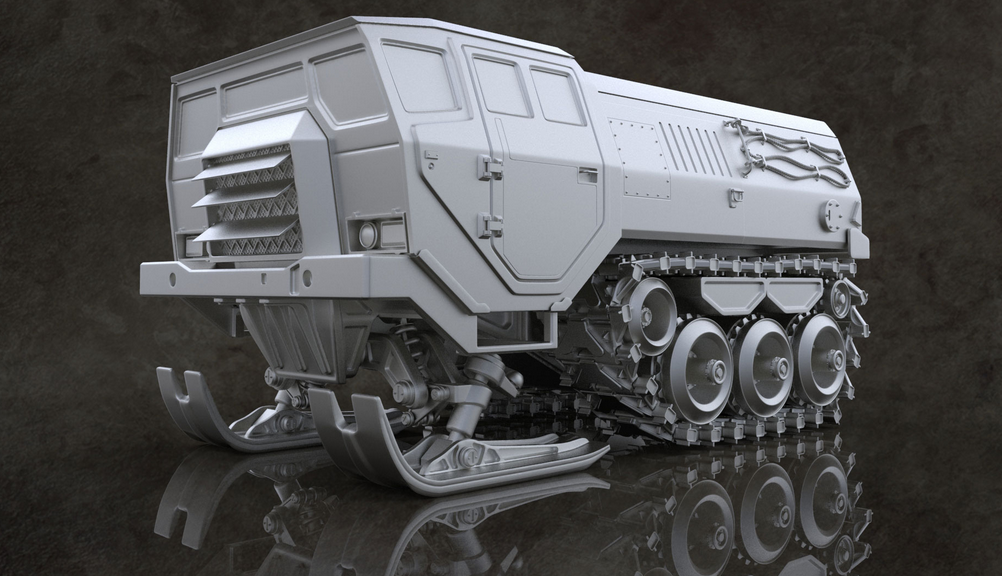
Q: What recommendation do you have for people starting out in the industry?
A: My best recommendation is to just be yourself. Not only personality wise but also with your artwork. I felt the times where I stuck true to doing art that is reflective of my own personality, and also the type of stuff I enjoy most, has brought out the best results and best reactions from others. From my experience, I have always felt having this mentality will get you into studios and projects that are a better fit for you.
To me, the ones that I consider the most successful people in this industry are always the ones that are not hung up on what others are doing or even just getting away from who they really are with their own personal style. I think the moment people start catering their art style to what the majority of what the industry is doing, end up becoming very bland artistically, and end up getting lost into the large heap of people that are doing the same thing.
Usually in those cases out of that large heap, there will always be a few key people that do it much better; and my personal opinion on that is probably because they were actually being themselves, and they were the true masters at that art style, and that's why they cannot be replicated by others as good as them. (well said)
"I think the moment you run with what you do well, and stick to what you like doing, it will show in your work; and that's when you'll see much better opportunities and the right opportunities for you come your way. "
Splinter Cell: Blacklist
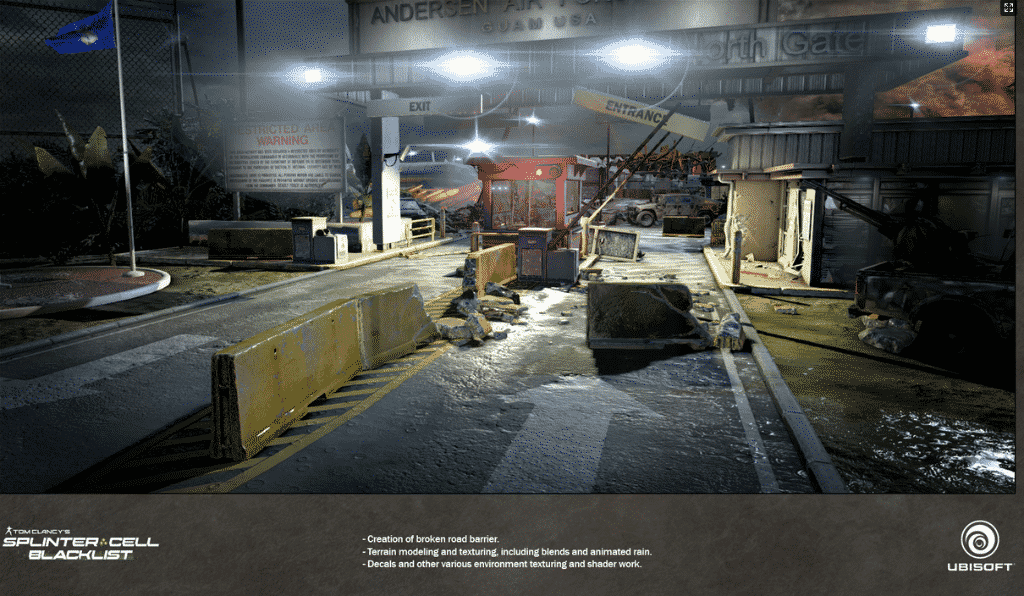
Q: What are some of the do's and don'ts you have learned?
A: Things to do: Be Positive, always know that you can learn something new, even of someone that has much less experience than you. I learned so much cool stuff from people that have worked in the industry for only a month or two, it never matters where they come from. Always be on the lookout for new methods and ways to do your job better. Be on the lookout for new software, new tools, and be on the lookout for more knowledge on general art fundamentals. Basically get comfortable with trying new things and having the desire to learn new things. Learning is forever.
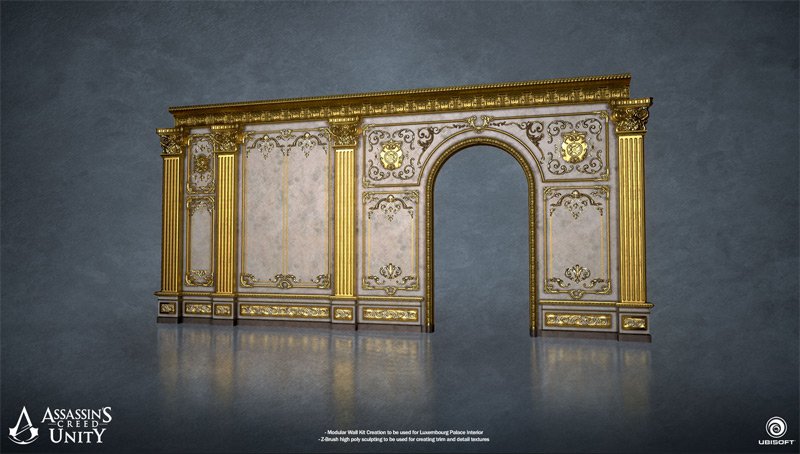
Things not to do: Don't become bitter and toxic from your bad experiences, also if you land a job or worked on a big project don't start to get a big ego and think you are suddenly superior over everyone else; because the truth is nobody will like you or want to work with you. I've seen many examples of very exceptional artists that have burned too many bridges to the point they either don't or will never get into some top studios because their ego is a big turn off with a very high profile studio culture.
"Don't stick to your old ways too much, because technology and production styles will always change. Don't get too comfortable, and always challenge yourself to improve your art skills and gain more technical knowledge."
Ratchet & Clank: A Crack In Time
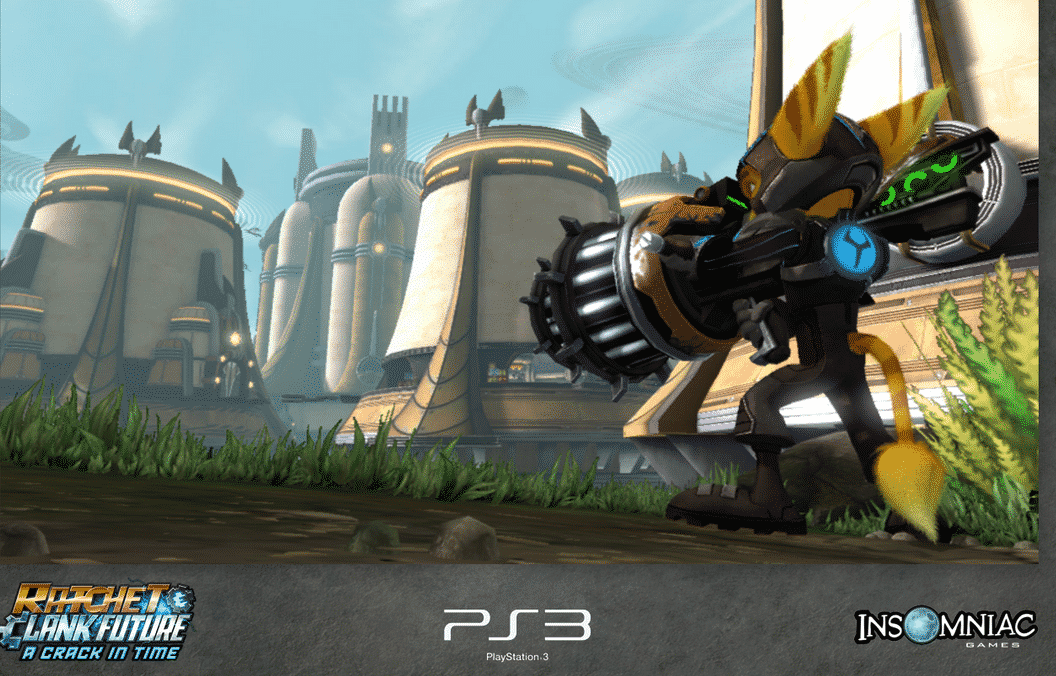
Q: What satisfies you the most about this career?
A: Tough to say, this always changes, but I think the ultimate satisfaction is to be on a team full of people I respect and that are a true pleasure to work with. Basically a positive team atmosphere, where everyone honestly shares the same goal to create something great. On the flip side, I say this because I think some of the darker times of my career is when the team aspect is missing, or people have too many personal motives that get in the way of achieving the big overall picture. I also think to make a Great Game, Film, TV show, whatever it is, it's a team effort and requires everyone to do their part; and when that happens, is when you get the best games, Films, Shows etc.
Q: What can you burn you out in this type of career and what do you do to sustain yourself in it?
A: Also a tough one to answer, I guess I have many different outlooks on this. There are all sorts of things that can make one burn out in this career. One thing I can definitely say is that its a creative industry, so what goes with that is a lot of passionate people that care a lot about their craft. Many of the projects I worked on have hundreds of people working on them, with a lot of different opinions of the overall vision of how that particular project should be. So think about it, it's going to turn out that hundreds of people are not going to share the same vision so people have to come to an agreement and stick to 1 vision.
"Sometimes you have to work on something you don't agree with artistically, but its your job. But how you choose to handle it and accept it will make all the difference in the world for you and the the people around you. If you want to let it get to you, you'll probably hate your experience on that project, maybe go as low as hating that company, and eventually hating your job; because you will never escape it until you choose to accept this is how our industry works."
I've seen some individuals become so negative they essentially project poison and start spreading that negative attitude onto others. I believe this sort of stuff happens in almost any creative industry because its natural for people to be more invested in what they are doing over a regular job. I think if you maintain a positive attitude and consciousness that its a business, respect the direction of people in charge, and accept you are not going to agree with everything 100% of the time, but as long as you can look past it and focus on the positive aspects to bring back your motivation; a positive mental attitude will be the key to you being so much happier with your job.
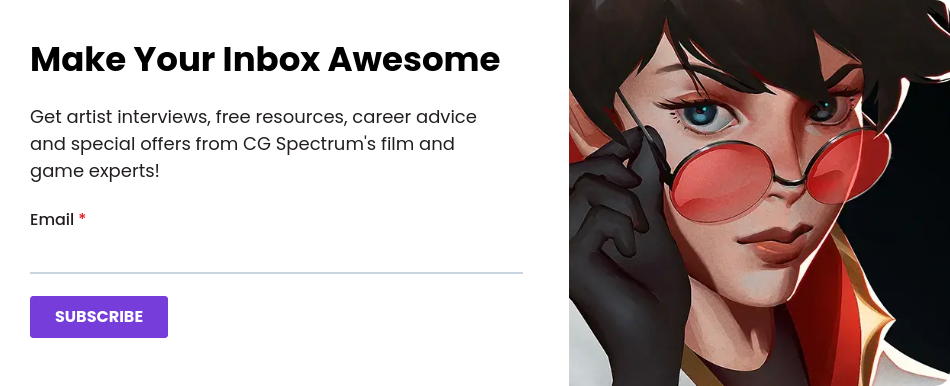
However, I can definitely say that If you are working in an environment that is very negative, and where the morale is very low, It could have the potential to affect your career negatively and bring you down along with the negative atmosphere that surrounds you. In those situations, you're probably going to deserve to be part of a much more positive working environment and should search for it because they are out there.
THQ: Internal Pitch Project
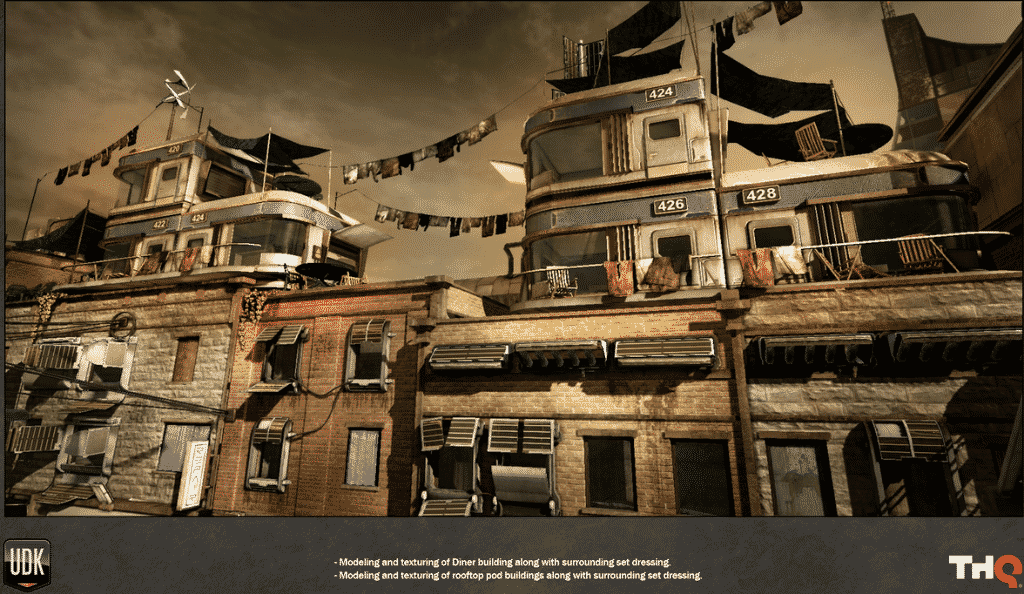
Q: Is there anything more you would like to add, any other advise you could give?
A: I think for anyone trying to get into this industry, to not limit themselves to the city they currently live in. Be prepared to take your first job anywhere in the world, the moment you do this you just expanded the number of opportunities for yourself.
In my case, I didn't grow up in a place that had studios to work for, so I was forced to move or do something else. Perhaps you grow up in a place that only has 1 or 2 places to apply, if you just stick to those, most likely that's not going to give you the greatest career. Perhaps that won't give you a career at all because you limited yourself to 2 studios, so get prepared to have the flexibility to move across the world, to a different country if you have to.
***
If you think this type of career fits your style, click below for more information on this exciting industry!
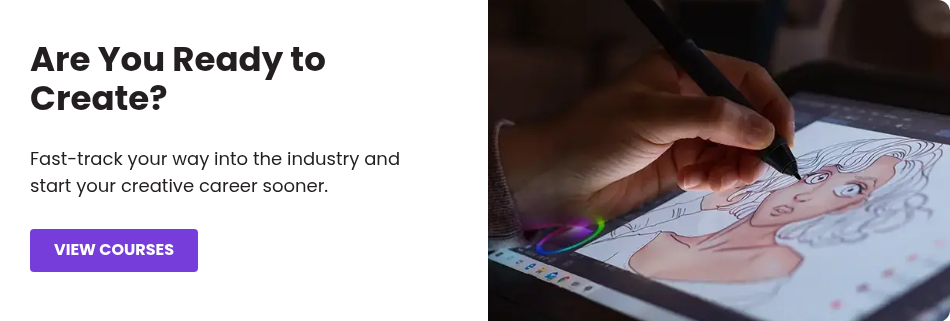
Related Links
